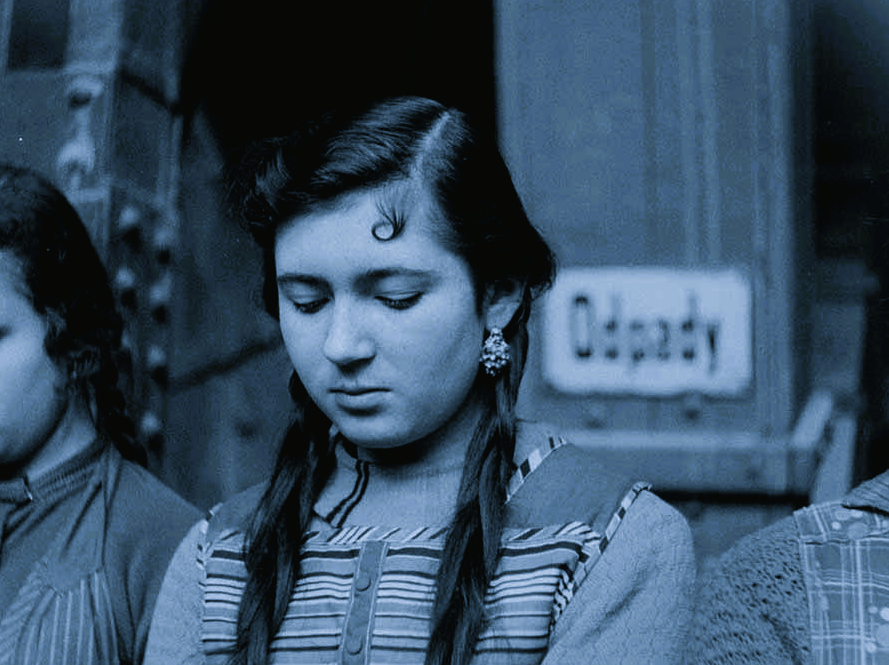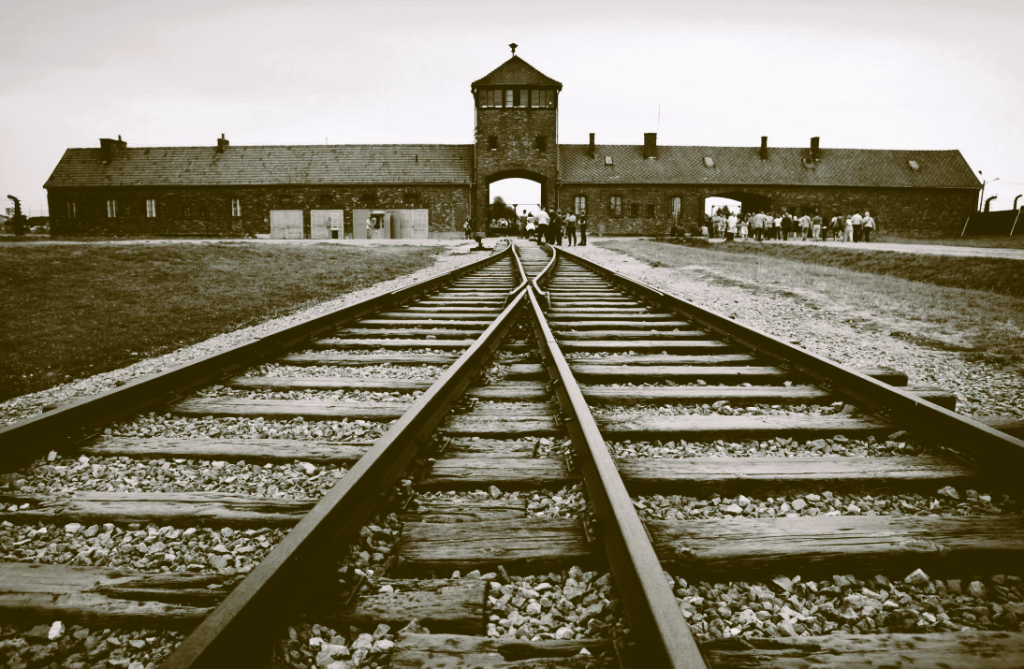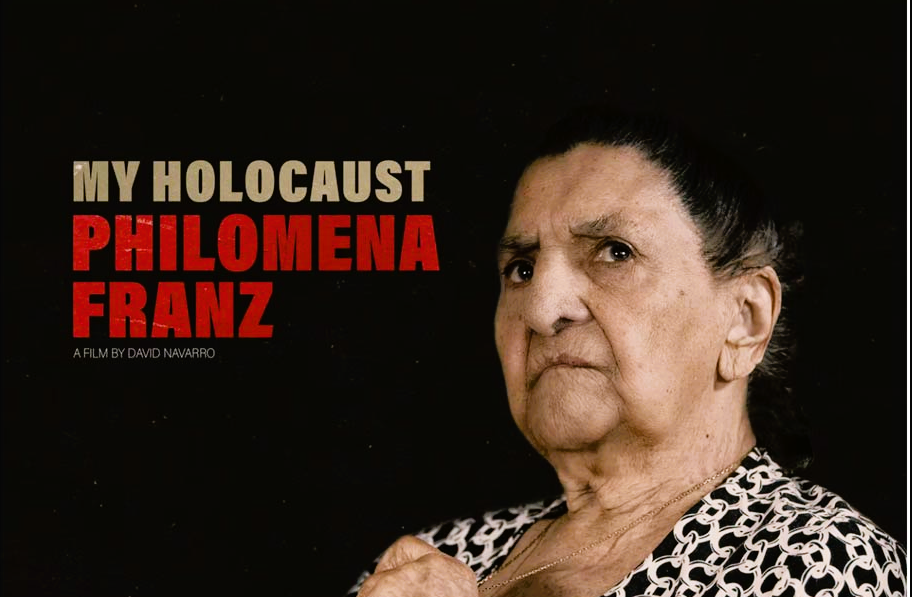
When people hear the term “Holocaust survivor,” they often assume it refers exclusively to Jewish survivors. While the majority of individuals targeted and killed by the Nazis were indeed Jewish, it’s important to recognize that other groups were also persecuted and murdered. The second largest group targeted during the Holocaust was the Romani-Sinti, commonly referred to as “gypsies” during World War II and the Holocaust.
Philomena Franz is a notable figure, particularly recognized for her work as a Holocaust survivor and her contributions to Holocaust education and Romani rights. She was born on January 25, 1922, in Biberach an der Riß, Germany. She was of Sinti origin, an ethnic subgroup of the Romani people, who the Nazis also targeted during the Holocaust.
As a young girl growing up in a Sinti family of musicians and performers with long-established roots in Germany, Franz sang and danced as a member of her family’s company, including performing at the Lido in Paris and the Winter Gardens in Berlin.

During World War II, Philomena Franz was arrested by the Nazis due to her ethnicity. She was deported to Auschwitz Concentration Camp and later to Ravensbrück Concentration Vamp. She was the first Romani woman to record in writing her experiences in the concentration camps. Following are some extracts from her writing.
Extract 1: Early Life
“I grew up in a loving Sinti family. Music and storytelling were central to our lives. The nights were filled with songs and the laughter of my siblings. It was a life rich in culture and traditions, but this idyllic childhood was shattered by the rise of the Nazis.”
Extract 2: Arrest and Deportation
“The day they came for us, I will never forget. The SS stormed into our home, their boots echoing off the walls. We were dragged out, beaten, and herded onto a train like cattle. The journey to Auschwitz was a nightmare of fear, hunger, and the cries of desperate souls.”
Extract 3: Life in Auschwitz
“Auschwitz was a place of unimaginable horror. The smell of burning flesh hung in the air. We were stripped of our dignity, our identities reduced to numbers. Forced labor, starvation, and the constant presence of death were our daily realities. Yet, amidst this darkness, we tried to hold onto our humanity.”

Extract 4: Liberation and Aftermath
“When the camp was liberated, I was a shadow of my former self. The joy of freedom was tempered by the immense loss and trauma that haunted me. Returning to a Germany that had been complicit in our persecution was painful, but it was the beginning of my journey to reclaim my life.”
Extract 5: Advocacy and Education
“I vowed to speak out, to tell my story so that the world would not forget. The persecution of the Sinti and Roma must be remembered alongside the broader Holocaust narrative. Through education, we can foster understanding and prevent such atrocities from ever happening again.”
Extract 6: Reflections on Love and Hate
“Between love and hate lies a thin line. I have seen the worst of humanity, but I have also seen incredible acts of kindness and solidarity. My journey is a testament to the resilience of the human spirit. Despite the horrors I endured, I choose to live with love and hope for a better future.”
After one failed attempt to escape from Ravensbrück, Franz succeeded in escaping from a camp near Wittenberge in 1945 and, with the help of a German farmer, managed to stay alive and hidden. After the war, she discovered that most of her family had been killed in the camps. Aid was not readily available for Romani survivors, so Franz joined forces with other Sinti musicians to form a band. They toured the country and performed for the troops who had liberated them.
During this period, she met Oskar Franz, whom she married and with whom she had five children. In the years that followed, she suffered from severe depression, repeated nightmares, and an ever-returning sense of being in captivity. At the same time, she struggled with the lack of official recognition of the victimization of Sinti and Roma in the Holocaust and the lack of restitution.
In January 2015, she was one of 19 survivors of the Auschwitz Concentration Camp whose contributions were included in the cover report The Last Witnesses in the weekly magazine Der Spiegel.
In 2023, she was the subject of the film Mi Holocausto.

Franz passed away on December 28, 2022, at the age of 100. The mayor of Bergisch Gladbach, Frank Stein, paid tribute to her, highlighting her tireless work for reconciliation and coexistence, striving for a future where all people can live in peace. Franz was laid to rest on January 9, 2023, at Cologne’s Westfriedhof.
Sources
https://www.romarchive.eu/en/collection/p/philomena-franz/

Donation
I am passionate about my site and I know you all like reading my blogs. I have been doing this at no cost and will continue to do so. All I ask is for a voluntary donation of $2, however if you are not in a position to do so I can fully understand, maybe next time then. Thank you. To donate click on the credit/debit card icon of the card you will use. If you want to donate more then $2 just add a higher number in the box left from the PayPal link. Many thanks.
$2.00